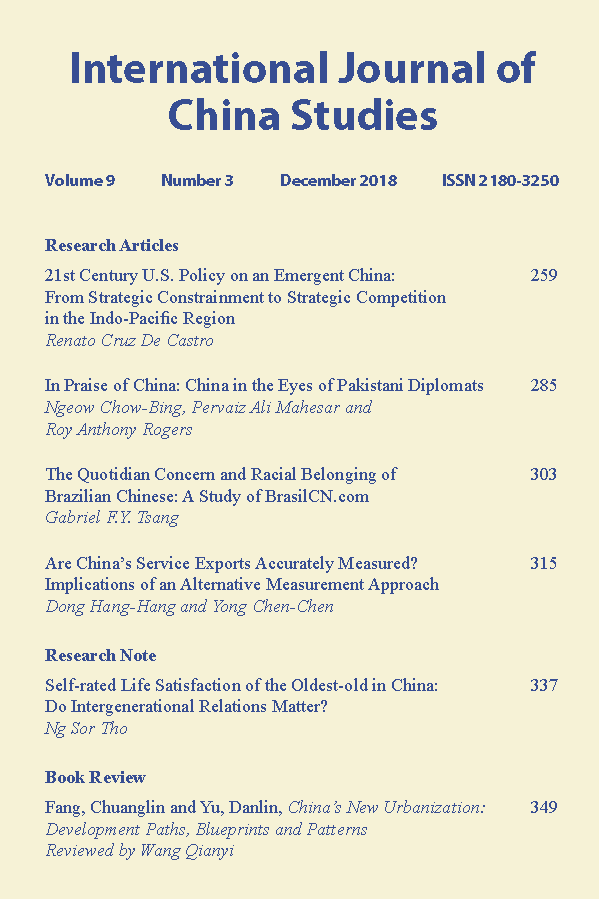The Quotidian Concern and Racial Belonging of Brazilian Chinese: A Study of BrasilCN.com
Keywords:
Brazilian Chinese, mainland China, BrasilCN.com, networking, culture, communicationAbstract
Benedict Anderson regards nation as a socially constructed “imagined community.” The imaginative nature of the nation implies the possibility of shifting personal belonging to a geographically identified area from reality to a virtual network shared by the people who hold the same selfidentification. The development of websites that serve Chinese diaspora reinforces the overseas Chinese’s emotional and epistemological connection to mainland China. By analyzing BrasilCN.com 巴西華人網, which is the first Chinese-language website that has offered news, quotidian information and forum communication to Brazilian Chinese since 2009, this research paper will structurally reveal how its selected provision of knowledge related to China and its forum platform for group conversation deliver a sense of racial support that differentiates the users from local Brazilians. It holds an argument that the intersectionality of the identity of Brazilian Chinese causes the hybridity of the content of BrazilCN.com and creates a demand for connecting between two sides, instead of solely solving daily problems of living in Brazil or reminiscent problems of being physically isolated from China. The posted information reveals that the users’ requests related to Brazil and China are imbalanced. There are tensions between localization
and cultural estrangement.

